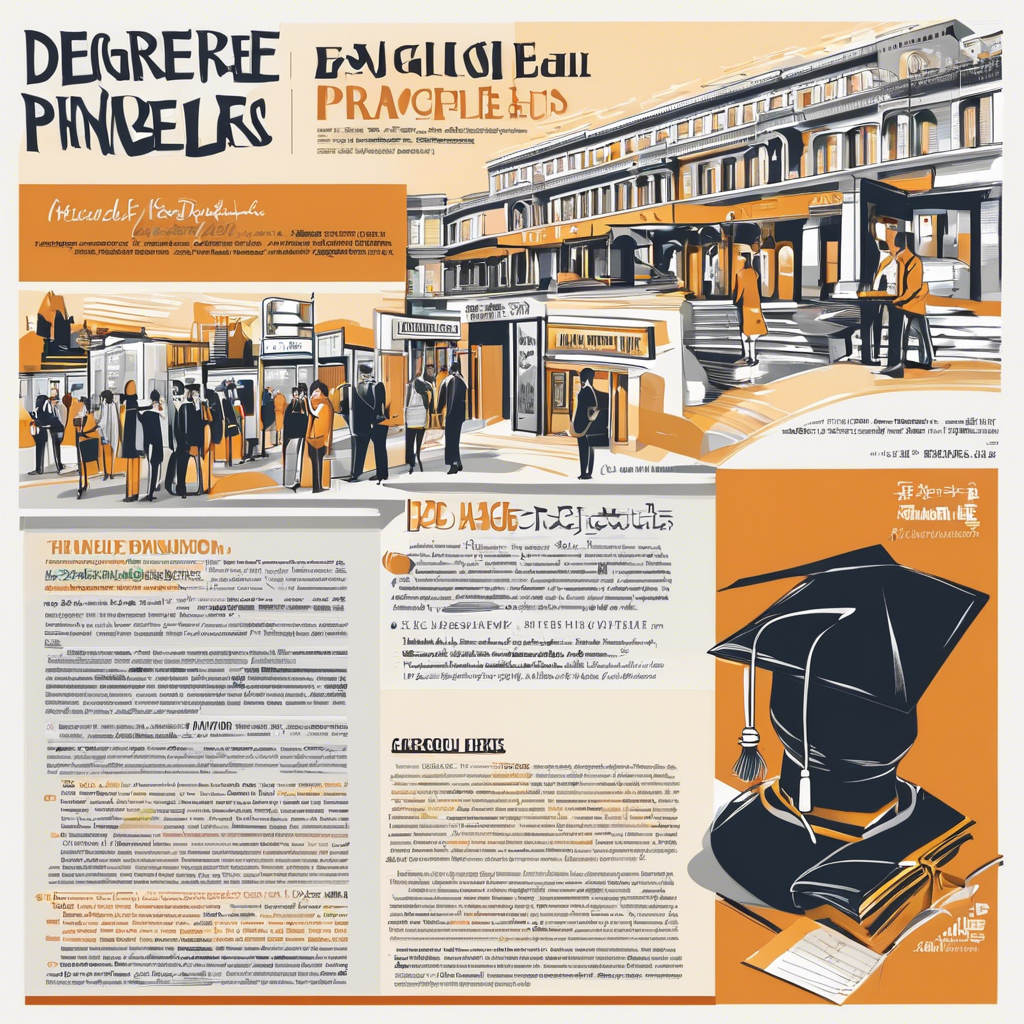A degree program is a structured educational curriculum that leads to an academic degree upon completion. These programs are offered by universities, colleges, and other higher education institutions around the world. Degree programs cover a wide range of subjects and are designed to provide students with in-depth knowledge and skills in a particular field of study.
Students can choose from a variety of degree programs based on their interests and career goals. Common types of degree programs include bachelor’s degrees, master’s degrees, and doctoral degrees. Each type of degree program has its own set of requirements and curriculum, with increasing levels of specialization and complexity as students progress from one level to the next.
Bachelor’s degree programs are typically four-year programs that provide students with a foundational understanding of a particular subject. Students take a variety of courses in their chosen major as well as general education courses in subjects like English, math, and science. Upon completion of a bachelor’s degree program, students are awarded a Bachelor of Arts or Bachelor of Science degree.
Master’s degree programs are advanced programs that allow students to specialize further in a particular field. These programs typically take one to two years to complete and require students to complete a thesis or capstone project. Students can earn a Master of Arts, Master of Science, or other specialized master’s degree upon completion of the program.
Doctoral degree programs, also known as PhD programs, are the highest level of academic achievement. These programs are research-intensive and typically take three to seven years to complete. Students work closely with faculty advisors to conduct original research and write a dissertation. Upon completion of a doctoral degree program, students are awarded a Doctor of Philosophy degree.
In addition to traditional degree programs, many institutions also offer online degree programs. Online degree programs allow students to earn a degree from the comfort of their own home and on a more flexible schedule. These programs are especially popular among working professionals and non-traditional students.
When choosing a degree program, it’s important for students to consider their career goals, academic interests, and personal preferences. Students should research different programs, compare curricula, and consider factors such as program reputation, faculty expertise, and opportunities for internships and research.
Degree programs can open up a wide range of career opportunities for graduates. Depending on the field of study, graduates of degree programs can pursue careers in areas such as business, education, healthcare, technology, and the arts. A degree program provides students with the knowledge and skills needed to succeed in their chosen field.
Overall, a degree program is a valuable investment in one’s future. Whether you’re looking to advance your career, switch fields, or pursue a lifelong passion, a degree program can help you achieve your goals. With the right program and dedication, you can embark on a rewarding educational journey that will shape your future success.
